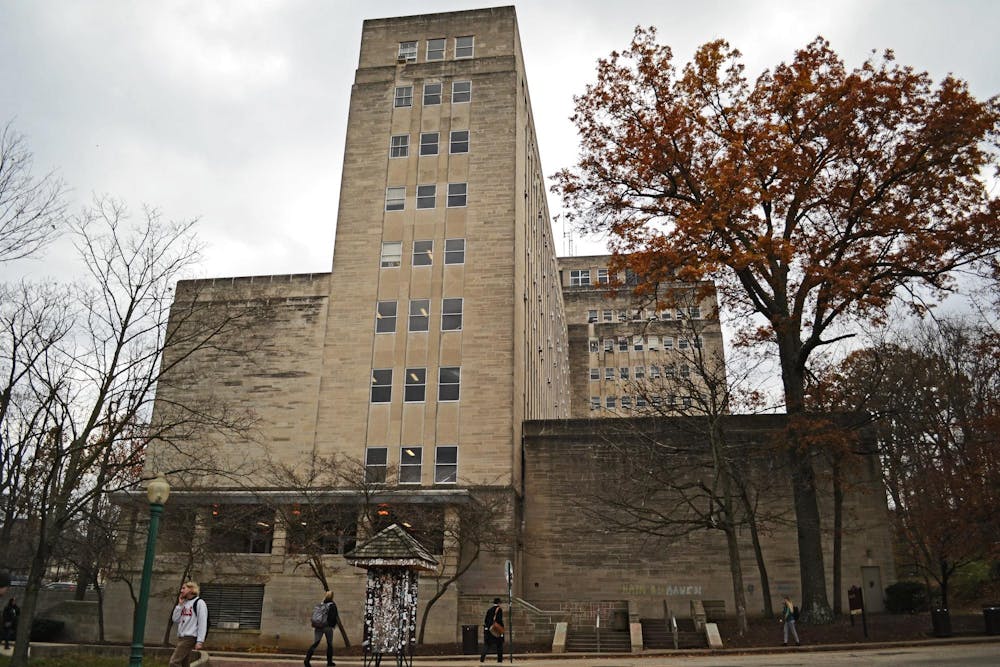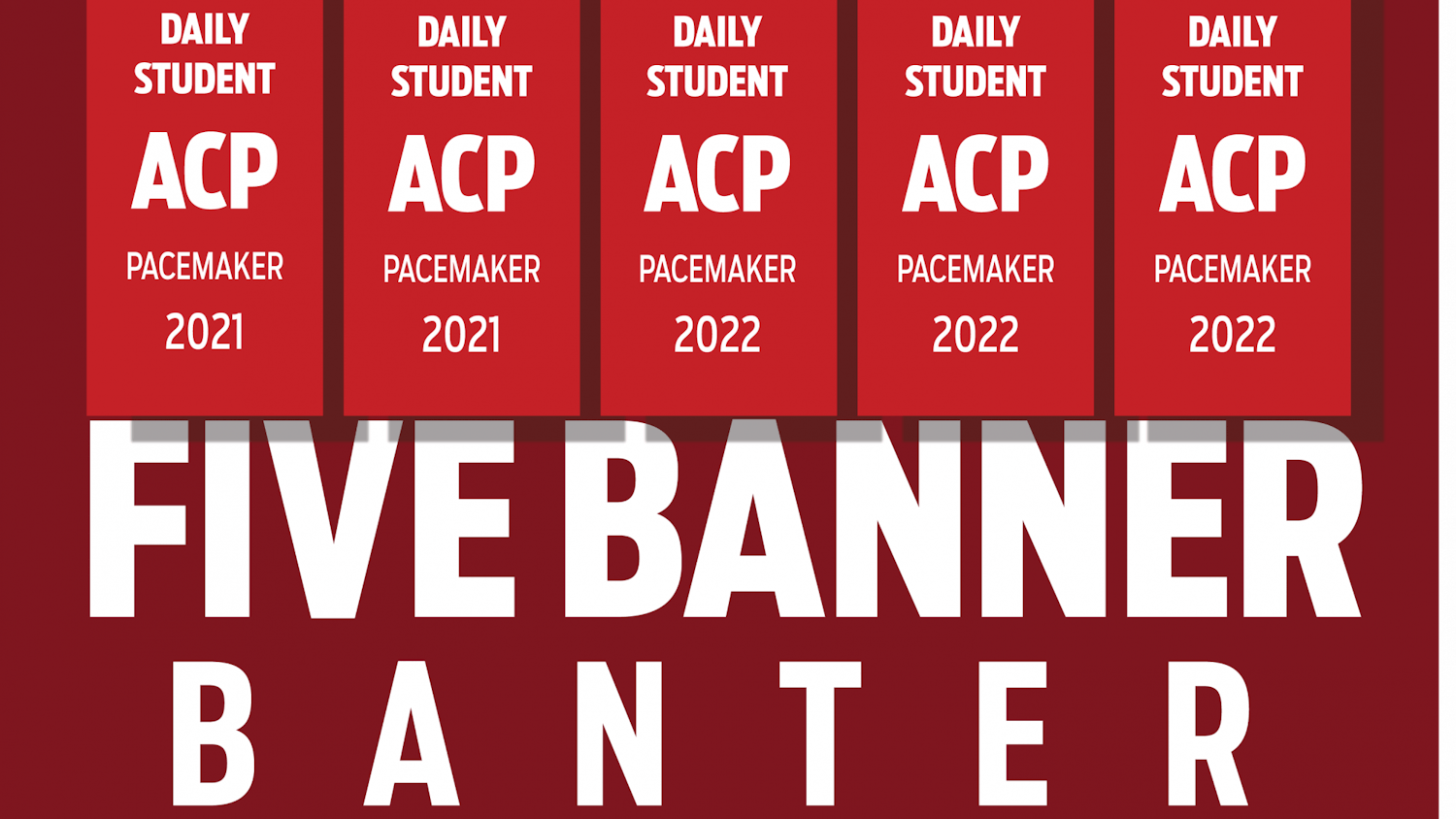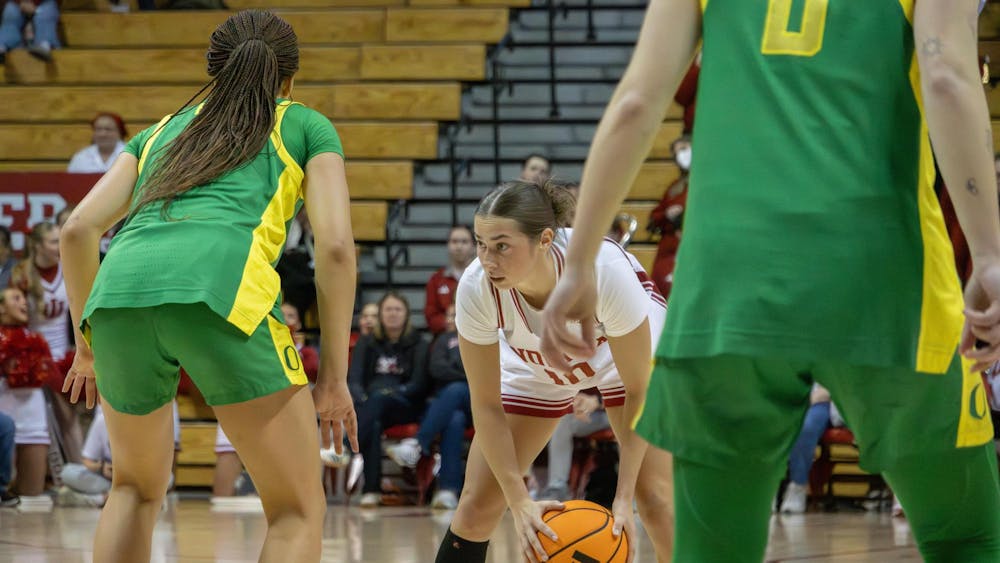Editor’s Note: This column was submitted to the IDS before the Gaza encampment and protests began April 25. The authors have since added this comment about the encampment: "The events of the past week have displayed the detrimental consequences of the administration's apathy for student wellbeing and lack of accountability and transparency." The IDS has also independently confirmed the facts in this column through documents we obtained, including information about the restructuring of the Office of Student Life and the Indiana Memorial Union.
IU promises a true college experience, boasting a vibrant community flush with opportunities for involvement and social learning. But the current administration is suffocating everything that makes IU thrive through its unwillingness to listen to students.
Repeatedly, they have disregarded, disempowered and dismantled all outlets of the student voice. They routinely prioritize revenue generation over student well-being and make decisions in an environment with zero transparency or accountability. But the student voice will be silenced no longer.
We are the Student Voice Coalition (SVC) — an alliance comprising five of the largest organizations on campus, including IU Student Government, Graduate and Professional Student Government, the Indiana Memorial Union Board, IU Funding Board and the IU Residence Hall Association. Formed this time last spring after the office of the IU-Bloomington provost decided to restructure the Office of Student Life with zero input from students, the Student Voice Coalition is dedicated to amplifying student voices and promoting student involvement in our university.
We’ve met with more than a dozen of IU’s most prominent student leaders. They’ve all shared similar frustrations about the administration and have lacked an outlet to voice their grievances. This article will voice the concerns that our organizations have personally experienced. Subsequently, we will amplify and share the stories of other organizations who’ve faced negative experiences surrounding these same themes. We share these stories not just to air our grievances but in hopes of collaborating with administrators and student groups to ensure tangible, structural changes that elevate the student voice and promote student flourishing.
Critique 1: Administrators prioritize revenue generation above student wellbeing
The framework the administration uses in their decision-making revolves entirely around revenue generation. Nearly all metrics and markers of progress from the IU 2030 Strategic Plan — which will guide this university through the end of the decade — distill the student experience into recruitment and retention numbers for the university’s financial gain. While the values in this plan aren’t inherently objectionable, the way they are operationalized condenses the student experience into nothing more than dollar signs for the university.
Many decisions are structured such that students are recommenders, not decision-makers, even with our own resources. The Committee for Fee Review process is a student-led committee that recommends how the student fees, paid by all students, are allocated to student organizations. Students have never been the decision makers in how our money gets used, and this is abundantly clear by the administration's brash assertions that they get to make the final call. To date, no member we spoke with from the former CFR cycle knew which of their recommendations were utilized nor were they made aware of the outcome.
Similarly, the provost initiated a restructuring of the historically student-led IMU without input from students or key IMU stakeholders. The initial plan was such that the hotel, meeting and events and dining would all be motivated exclusively by outside profits, making services even more unaffordable to students and effectively converting the IMU into a conference center. After this restructuring, a visioning committee of Union Board members, staff, and faculty submitted recommendations to the provost that keep the IMU a true student-focused Union. Despite civil and favorable recommendations put forth by this group, we have no assurance that these recommendations will be accepted and don’t know what will come of the Union. Across this university, students are relegated to just advising how the resources we create and contribute to are used, and we’ve been stripped of any ownership and authority over our resources.
Critique 2: Administrators lack accountability and transparency
All administrative decisions happen in a black box. Earlier this year, Union Board President and SVC member Laurie Frederickson tried to attend an allegedly public Board of Trustees meeting and was turned away at the door due to the limited public seating already being full. She wrote this column, explaining that this was characteristic of the opaque and secretive decision-making processes used at the upper levels of this university.
Decision-making timelines routinely occur over the summer, when administrators can avoid critique from students. For example, the restructuring of the Office of Student Life began during dead week, finals week and summer of 2023 to ensure that students were distracted from the changes being made. These changes impact students directly — the Office of Student Life restructuring significantly altered the function of the Indiana Memorial Union, the Residence Life team, and much more — and yet students aren’t part of these decisions nor are they privy to the rationale behind them.
Search committees for student-facing roles also routinely exclude students. GPSG explained that there had been times when the provost had reached out for recommendations of graduate students to include on search committees. However, despite receiving these recommendations, the provost ultimately decided to omit them and instead appoint a student of his choosing to serve on the search committees. While some search committees may fail to include graduate students, other search committees fail to include any students at all. Other times, students are included but the meetings and conversations are structured such that it is nearly impossible for students to balance serving on these committees and attending classes. When students can attend, the environment is structured so intimidatingly that speaking candidly is out of the question.
Culmination: Administrators suffocate the student voice
As students move farther away from the Office of Student Life, it becomes increasingly evident how other parts of the administration, faculty and staff lack tolerance for student perspectives. In a campus environment designed to foster student growth and well-being, the current state of campus impedes the intended development and flourishing necessary for students.
If a university’s focus is not students, then what is it? To this administration, IU exists to generate revenue. These concerns have fallen on deaf ears because they’re failing to see how IU should be more than just a career preparation school. It's time to challenge this narrow perspective and demand that IU prioritize the holistic development and the voice of its students above all else.
Laurie Frederickson (she/her) is a junior double majoring in criminal justice and psychology at the College of Arts and Sciences. She is also the current president of the 115th Indiana Memorial Union Board.
Chelsea Brinda is a fourth-year PhD student in curriculum and instruction. She is the outgoing president of the Graduate and Professional Student Government.
Aaliyah Raji is a junior majoring in business at the Kelley School of Business. She is the outgoing Student Body President.
Keeton Gibson (she/her) is a first-year Master of Public Affairs student at the O’Neill School of Public and Environmental Affairs. She served as the president of the Residence Hall Association for the 2023-24 academic year.
Larry McDowell (he/him) is a junior majoring in Counseling at the Wright School of Education. He serves as the Executive Director of IU Funding Board.






